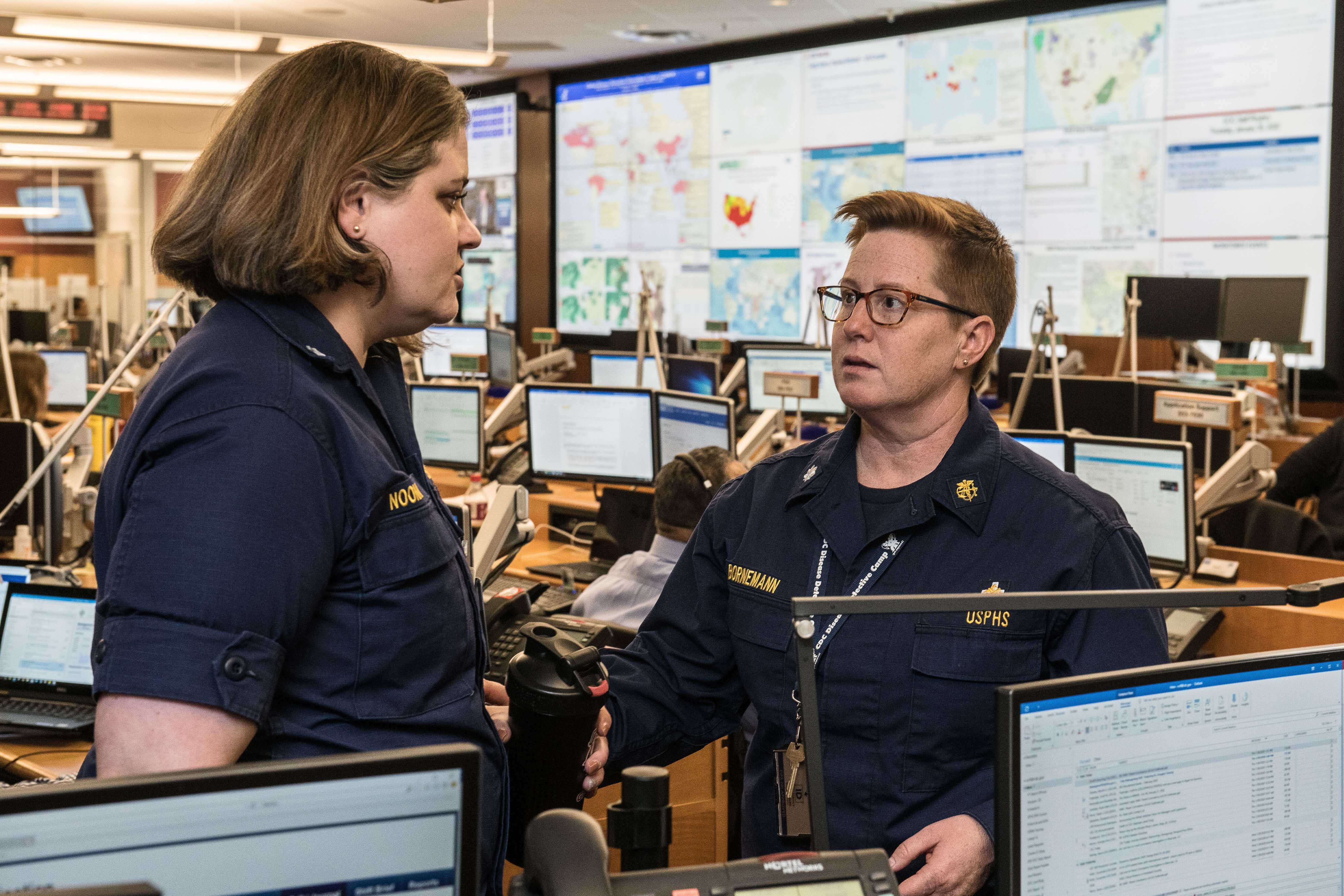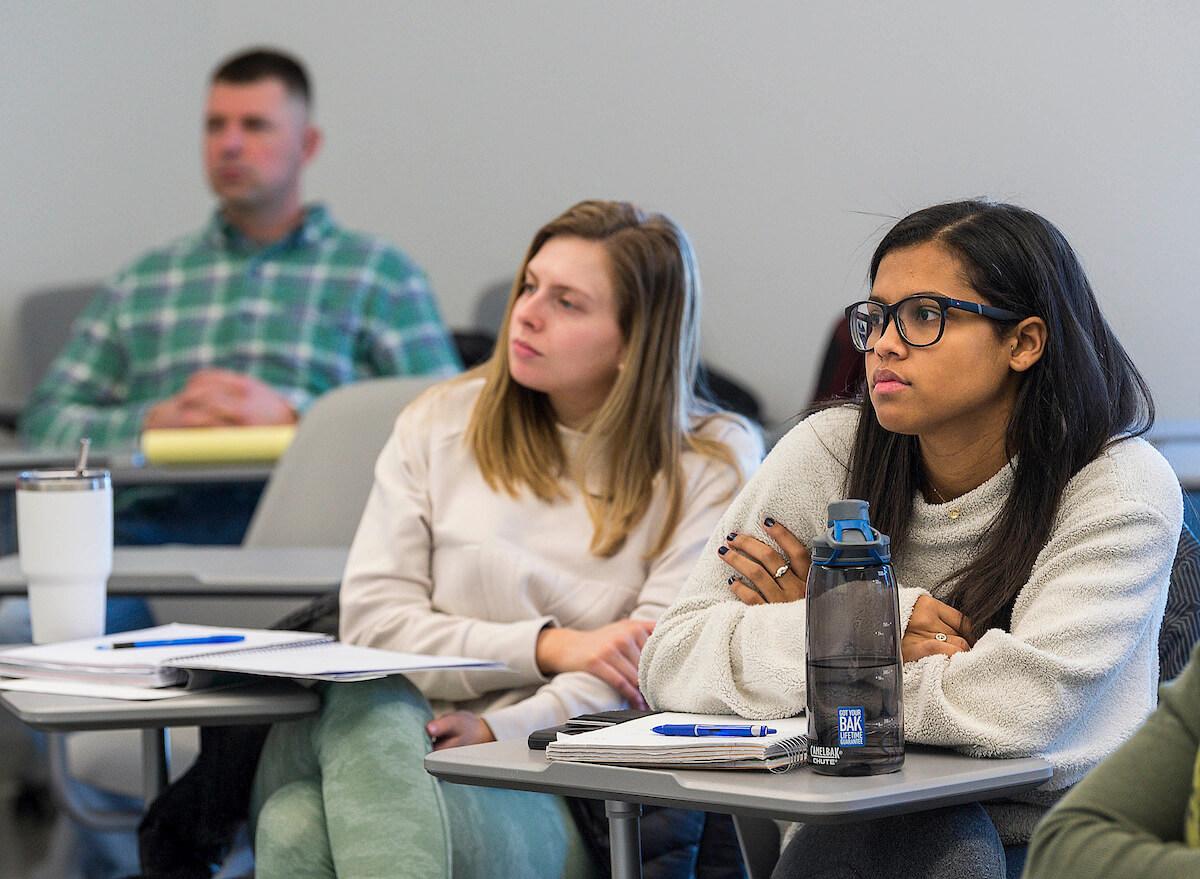As the world faces an unprecedented global health crisis, establishing and maintaining good public health practices is at the forefront of everyone’s mind. Public health professionals are working tirelessly to implement creative, sustainable solutions and advocate on behalf of communities most in need.
If you’re interested in improving the quality of life for communities and individuals through disease prevention, wellness education, and political advocacy, you may be wondering: is a Master of Public Health the right path for me?
We recently spoke with Sara Szollosy, an MPH student finishing her first year of study at Sacred Heart University. She shared with us why she decided to return to school for her MPH and how the community at SHU has supported her. Keep reading to learn about her journey to become a public health professional and what her experience has been like at Sacred Heart.
Tell me a little about yourself and why you chose to pursue a Master of Public Health at Sacred Heart University.
I received an undergraduate degree in health studies and went directly into the workforce. I worked for six years in supportive housing, mental health, and substance abuse. I had done well in my company but felt I had reached a peak and I wanted more from my career and future. Additionally, I value education and expanding my knowledge and knew there was much more I wanted to learn and explore related to the field of public health.
Since graduating I periodically looked into MPH programs at various schools to see what they offered and to consider my options. Before making the final decision to come back to school full-time, I knew there were certain things I needed. I wanted a school with a reputation I could be proud of. I wanted a program that was in-person where I would get face-to-face time with my professors and peers. I wanted a school that I knew would support my transition both back to school and back out into the workforce. This narrowed down my choices and when I began making contact with the schools it was clear to me, based on the immediate support and welcoming conversations I had with different people at Sacred Heart University, that I had found the right school.
Why are you passionate about the field of public health?
So many of the leading causes of death in our country are caused by diet and lifestyle choices. My passion comes from knowing that this does not have to be the case, and from learning and exploring all the reasons for this problem and working towards solutions. Public health is involved in every aspect of life and because of this public health students and professionals get to learn and work in so many different parts of the health community.
I became deeply interested in nutrition in the freshman year of my undergrad program. I learned quickly it was not the chemistry of food that interested me but the critical role food and diet play in the way people feel, the prevention of chronic disease, and their longevity. This holds true for all areas of health and I am passionate about finding ways to improve people’s lives.
What are your career dreams? How is your program preparing you to accomplish these goals?
My dream would be to spend my career working to change the way people understand nutrition and the food that they consume. With this, I want to help reduce the burden of chronic disease and the leading causes of death in our country, which are largely affected by lifestyle and diet choices. The professors in the MPH program continue to show us ways to make this possible through things such as community nutrition programs and research or policy development, all of which we have been able to work through with their assistance.
The beauty of the MPH program at Sacred Heart University is the investment of the professors in their students. They make it their priority to know our interests and offer opportunities and guidance to pursue these in a multitude of ways.
Why did you choose this specific graduate program at SHU? Why is this program unique?
I had a few things I was looking for in a school, including classes that were in-person so I could develop relationships with my professors and peers and a program that I felt would give me the greatest opportunity to learn and grow as a graduate student. Something I could not have anticipated, and what makes this program so unique, is the support and investment of the professors. It is clear, without a doubt, that our professors are passionate about the field of public health, sharing their areas of interest and research, and fostering the growth of their students to reach any goal they have. I cannot emphasize enough the impact I feel this has on us as students, our ability to learn, and our success both during and after the MPH program.
How are the hands-on elements of the MPH program preparing you for your career?
Every class has hands-on elements, either in-class discussions or projects and research where we work through real-world public health problems. Currently, in our program planning class, we are spending the entire semester designing a program from the ground up with a group of our peers.
I am beyond excited for the program we are designing, in which we are addressing period poverty by increasing access to necessary hygiene products, providing education, and reducing stigma around menstruation for students in Bridgeport CT. Through this process, we have spoken directly to schools and other supportive programs in the community who have expressed the need for assistance in this area, and we know through existing research that this is an issue that affects so many. We work on developing this program just as we would in a professional setting because, for all intents and purposes, it is a real-life, hands-on example of something we may very well do in our public health careers.
In my career before returning to school, I worked on developing new programs for my community. Having this chance to learn the steps with guidance from our professor, rather than learning as I go with minimal guidance, gives me much more confidence in my ability to design and implement a successful program.
Tell me about one of your favorite courses that you have taken in graduate school thus far.
I’ve loved all my courses, but one of my favorite experiences was in our biostatistics class, which may have been a more difficult class to enjoy if not for the chance to begin a project on a subject I am deeply interested in — dairy consumption and disease. I spent the semester working on analyzing data from the National Health and Nutrition Examination Survey and researching the topic with continual encouragement and oversight from Dr. Vernarelli.
This research ultimately led me to choose this topic for my thesis, and I am excited to pursue it with Dr. Vernarelli’s guidance. During this class, Dr. Vernarelli also made me aware of the John Milner Nutrition and Cancer Prevention Research Practicum held by the National Cancer Institute. With Dr. Vernarelli and Dr. Pendley’s help and letters of recommendation, I applied and hope to have the opportunity to attend before I complete the MPH program.
What projects have you enjoyed the most during your program?
I have worked on many exciting projects in this first year of my MPH program, including:
- A data brief and presentation on cholesterol trends in the United States.
- A research proposal addressing current gaps in the research available regarding the risk of type 1 diabetes in families that feed their infants dairy based on current recommendations.
- A policy brief and presentation on current USDA Food and Nutrition Services recommendations for school breakfast and lunch programs and the recent steps New York City has taken by passing Resolution 238, banning processed meats, which were declared carcinogenic by the World Health Organization in 2015.
- Research and a presentation using biostatistics to analyze national data and additional research, titled: “Got Milk? Dairy Consumption in Childhood and an Increase in Associated Risk Factors for Breast Cancer Diagnosis.”
- A group presentation on LGBT+ health concerns.
- A program addressing period poverty in Bridgeport, CT.
What advice do you have for prospective students thinking about enrolling in this program?
If you’re looking to not just receive a degree on paper but want to work directly with passionate, enthusiastic professors and to grow as a student and public health professional, this is the program for you. Your professors will offer you learning opportunities outside of the planned curriculum, take as many as you can.
Join the community of public health professionals at SHU!
Sacred Heart University's Master of Public Health program prepares you to protect and improve the health of individuals and entire communities. As we continue to learn more about present threats to our health and wellbeing, there is an increasingly high demand for dedicated professionals with the knowledge and experience to advocate for a high quality of life for all people. An MPH degree from SHU will give you the skills and knowledge you need to impact these desired health outcomes and change lives for the better. Download the guide or request more information, and join us in this noble work today!








